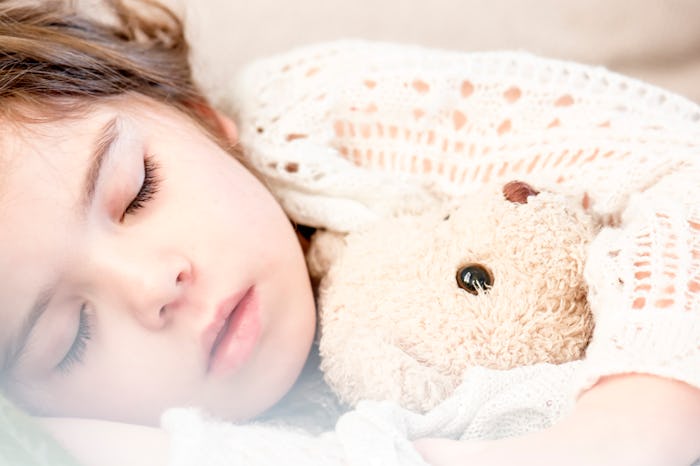Life
Do Kids Who Co-Sleep Have Fewer Mental Health Issues? Co-Sleeping May Reduce Anxiety
One of the most divisive issues in parenting is co-sleeping. While many parents and health experts believe co-sleeping is essential for babies to bond with their parents, some believe it isn't a safe practice. But aside from bonding, experts say that co-sleeping might have a beneficial impact on children's anxiety levels. Do kids who co-sleep have fewer mental health issues?
More kids than ever are sleeping in their parents' bed. It's reported that 45 percent of moms permit their 8- to 12-year-olds to sleep with them occasionally, and 13 percent allow it every night, according to Parenting's MomConnection.
Although this hasn't been scientifically proven, evidence suggests that more kids may be co-sleeping because kids face higher levels of stress and anxiety now than they did in the past. So the fact that studies show that co-sleeping lowers anxiety means that kids may be using co-sleeping as a remedy to such stress.
Studies have connected co-sleeping and mental health issues before. A study of the co-sleeping habits of military children found that, for those in the psychiatric population, co-sleeping was less common than in the general population.
Psychiatrist Michael Commons did research that shows babies who slept by themselves were more likely to develop stress disorders.
A long-term study on the outcomes of co-sleeping revealed that 6-year-old children who shared a bed with their parents showed higher levels of cognitive competence than those who didn't.
Dr. William Sears, a pediatrician, talked about the psychological benefits of babies sleeping with their parents in an interview with SheKnows:
Over the past thirty years of observing sleep-sharing families in our pediatric practice, we have noticed one medical benefit that stands out; these babies thrive. 'Thriving' means not only getting bigger, but also growing to your full potential, emotionally, physically and intellectually. Perhaps it's the extra touch that stimulates development, or perhaps the extra feedings (yes, sleep-sharing infants breastfeed more often than solo sleepers).
Robert LeVine, a professor of education and human development, and Sarah LeVine, a former research fellow in human development, wrote of the benefits of co-sleeping in The Los Angeles Times. They included in their essay an excerpt from Christine Gross-Loh's book, “Parenting Without Borders,” in which she describes witnessing how co-sleeping positively impacted children in Japan:
I noticed that most children—the same children who sleep with their parents every night—take care of themselves and their belongings, work out peer conflicts, and show mature social behavior and self-regulation at a young age. Japanese parents expect their kids to be independent by taking care of themselves and being socially responsible.
Both authors also wrote that "putting a baby in a separate room at night encumbers parents and leads to their exhaustion without guaranteeing the safety or future character development of their children."
